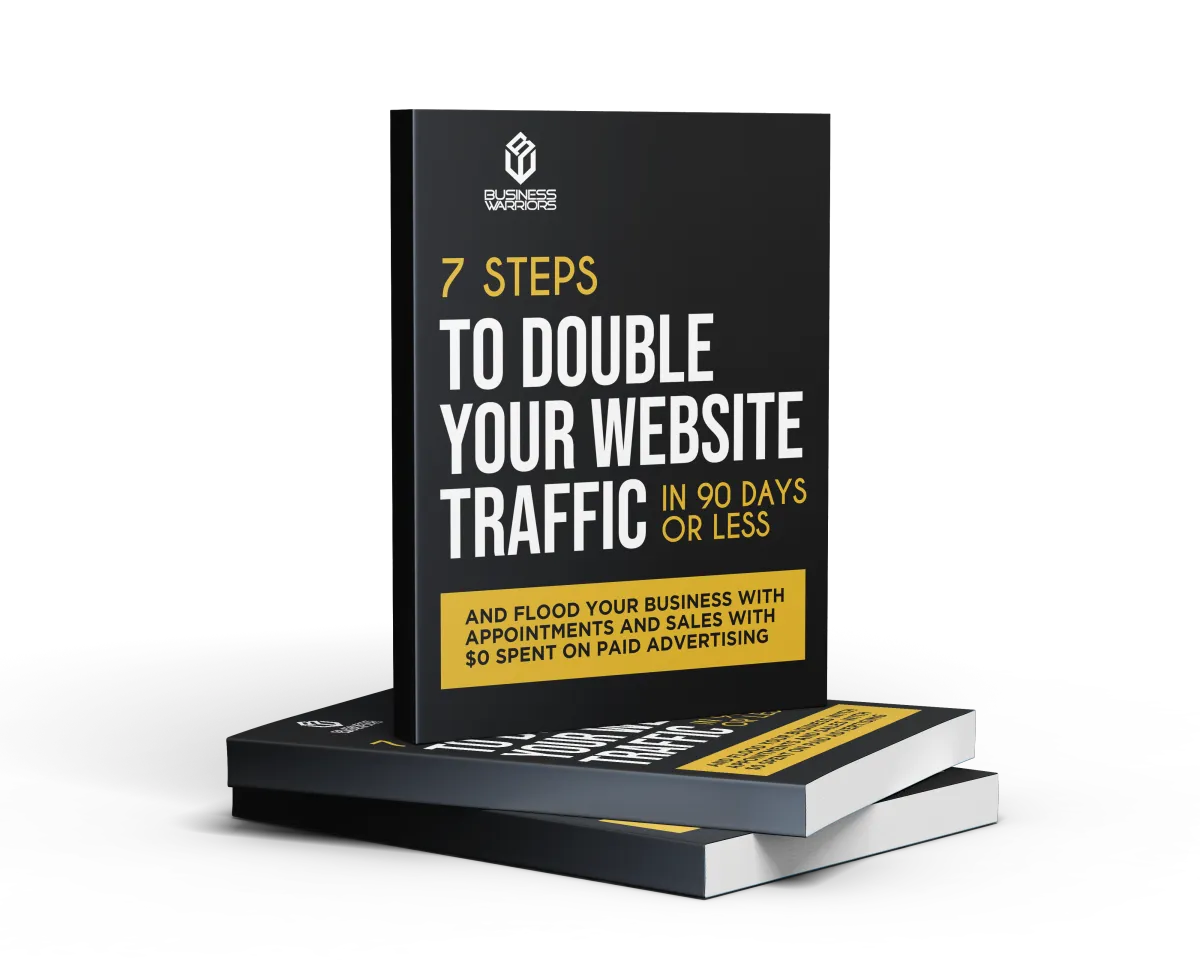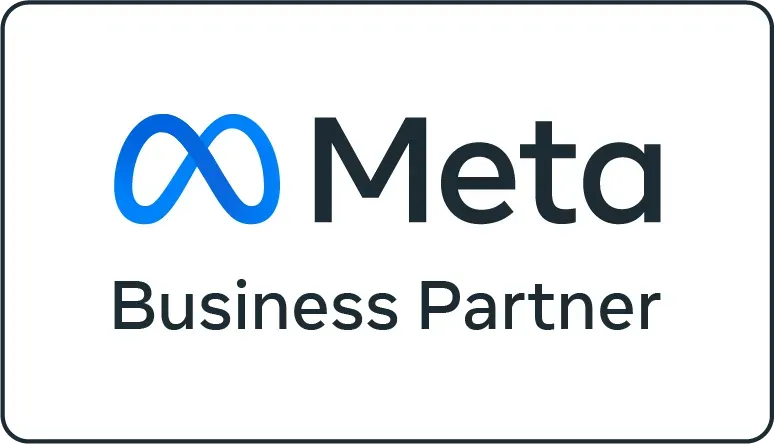Blog

A Comprehensive Guide to Conversion Tracking for Enterprise Accounts
Introduction
What is conversion tracking?
In the realm of digital marketing, conversion tracking is the process of monitoring and measuring specific actions taken by visitors on your website. These actions, known as conversions, can be anything from making a purchase to signing up for a newsletter. By tracking conversions, you can gain valuable insights into your marketing efforts' effectiveness and identify areas for improvement.
Why is conversion tracking important for enterprise accounts?
For enterprise-level businesses, conversion tracking is more than just a metric; it's a strategic tool. It provides essential data to:
Measure marketing ROI: By understanding which marketing channels and campaigns are driving conversions, you can allocate your budget more effectively.
Optimise customer journeys: Identify bottlenecks and improve the user experience to increase conversions.
Make data-driven decisions: Use conversion data to inform marketing strategies and tactics.
Benchmark performance: Compare your conversion rates to industry standards and identify areas for improvement.
Overview of the guide
This guide will delve into the intricacies of conversion tracking, providing a comprehensive overview for enterprise accounts. We'll cover everything from setting up tracking tools to analysing complex conversion data. By the end, you'll have a solid understanding of how to leverage conversion tracking to drive business growth.
Understanding Conversion Tracking Metrics

Key conversion metrics
Several key metrics are essential for measuring conversion success:
Revenue: The total income generated from conversions.
Cost per acquisition (CPA): The cost of acquiring a new customer through a specific marketing channel.
Return on investment (ROI): The profit generated from marketing efforts compared to the cost.
Conversion rate: The percentage of website visitors who complete a desired action.
Customer lifetime value (CLTV): The total revenue a customer generates over their lifetime.
How to measure these metrics
To measure these metrics accurately, you'll need to integrate conversion tracking tools with your website analytics and CRM systems. This allows you to track user behaviour, attribute conversions to specific marketing channels, and calculate relevant metrics.
Setting realistic conversion goals
Before diving into tracking, it's crucial to set clear and achievable conversion goals. These goals should align with your overall business objectives and be measurable.
Setting Up Conversion Tracking
Choosing the right conversion tracking tools
Several powerful tools can be used for conversion tracking, each with its own strengths and features:
Google Analytics: A free and widely used tool offering robust analytics capabilities.
Adobe Analytics: A comprehensive enterprise-level solution with advanced features.
Matomo: An open-source alternative with customisable options.
Other enterprise-level tools: Consider tools like Mixpanel, Optimisely, and Heap for specific needs.
Integrating conversion tracking with your website and CRM
To ensure accurate tracking, integrate your chosen tool with your website's code and your CRM system. This allows you to capture data on user interactions and customer information.
Common challenges and solutions
Setting up conversion tracking can present challenges, such as data quality issues or technical difficulties. Addressing these challenges early on is essential for accurate tracking.
Tracking Different Types of Conversions
E-commerce conversions
For online stores, tracking ecommerce conversions is crucial. This includes:
Purchase events: When a customer completes a purchase.
Add to cart events: When a product is added to the shopping cart.
Checkout events: When a customer progresses through the checkout process.
Lead generation conversions
For businesses that rely on lead generation, tracking the following conversions is essential:
Form submissions: When a visitor fills out a contact form.
Demo requests: When a visitor requests a product demo.
Newsletter sign-ups: When a visitor subscribes to your email list.
Custom conversions
Beyond standard conversions, you can track custom actions specific to your business. This could include anything from watching a video to downloading a whitepaper.
Best practices for tracking different conversion types
To ensure accurate tracking, follow best practices for each type of conversion. For example, use event tracking to capture specific user interactions and set up goals to measure desired outcomes.
Advanced Conversion Tracking Techniques
Event tracking
Event tracking allows you to track specific user interactions, such as button clicks, video plays, or scrolling behaviour. This granular data can provide valuable insights into user behaviour.
Goal tracking
Setting up goals helps you measure the achievement of desired outcomes. For example, you could set a goal for users to complete a purchase or sign up for a newsletter.
Funnel analysis
Funnel analysis helps you visualise the customer journey and identify bottlenecks where users may drop off. This information can be used to improve the conversion process.
Attribution modelling
Attribution modelling helps you determine the value of different marketing channels in driving conversions. This can be particularly important for enterprise accounts with complex marketing strategies.
Using data to optimise campaigns
By analysing conversion data, you can optimise your marketing campaigns. This includes adjusting targeting, messaging, and creative elements to improve results.
Conversion Tracking for Enterprise Accounts: Unique Challenges and Solutions
Data privacy and compliance
Enterprise accounts often deal with sensitive customer data, making data privacy and compliance a top priority. Ensure your conversion tracking practices adhere to relevant regulations like GDPR and CCPA.
Scaling conversion tracking for large organisations
Scaling conversion tracking can be challenging for large enterprises with multiple websites and complex marketing strategies. Implementing robust data governance and using enterprise-grade tools can help.
Integrating with complex marketing tech stacks
Enterprise accounts often have complex marketing tech stacks. Ensure your conversion tracking tools integrate seamlessly with other systems to avoid data silos.
Overcoming data silos
Data silos can hinder your ability to get a complete view of customer behaviour. Implement data integration strategies to break down these silos.
Leveraging AI and machine learning for conversion optimisation
AI and machine learning can be used to analyse vast amounts of data and identify patterns that humans might miss. This can help you optimise your conversion efforts more effectively.
Lessons Learned and Best Practices
Start with clear goals: Define your conversion goals before setting up tracking.
Choose the right tools: Select tools that align with your needs and integrate seamlessly with your existing systems.
Implement robust data governance: Ensure data quality and security.
Continuously analyse and optimise: Regularly review conversion data and make data-driven adjustments to your marketing strategies.
Leverage advanced techniques: Explore techniques like event tracking, goal tracking, and funnel analysis to gain deeper insights.
Conclusion
Conversion tracking is an essential tool for enterprise accounts looking to drive business growth. By understanding and implementing effective conversion tracking strategies, you can measure marketing ROI, optimise customer journeys, and make data-driven decisions. For expert guidance in setting up and managing conversion tracking systems, partnering with a specialised agency like Business Warriors can ensure your enterprise is equipped with the tools and insights needed for success.
WHAT WOULD YOUR RETURN ON INVESTMENT LOOK LIKE USING OUR DIGITAL MARKETING VORTEX METHOD TO YOUR BUSINESS?
GET THE DIGITAL MARKETING AGENCY SECRETS: 7 STEPS TO DOUBLE YOUR WEBSITE TRAFFIC IN 90 DAYS OR LESS








